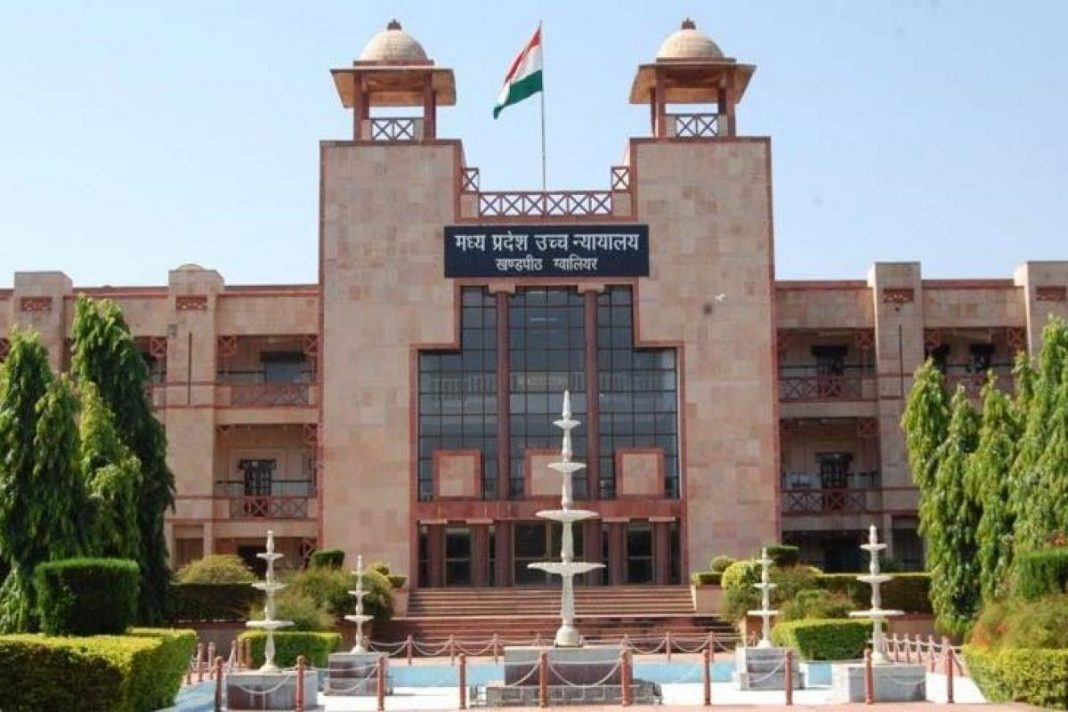The Madhya Pradesh High Court has ruled that it is not sufficient to seek issuance of writ of a Habeas Corpus on only an assertion that the corpus has been abducted by some unknown miscreants, while directing Police to find the relatives of the petitioner, alleged to have been kidnapped by the respondents.
A Single Bench of Justice S. A. Dharmadhikari passed this order on Monday, while hearing a petition filed by Chhaya Gurjar. The Counsel for the petitioner alleged that certain miscreants have abducted the sister-in-law of the petitioner, as well as her daughter from the premises of the High Court.
The Counsel further alleged that the respondent-authorities are having all the information in respect of both of them, but are not providing any information.
It is contended that when the mother-in-law of the corpus had come to the High Court in connection with some case, the accused abducted the sister-in-law and daughter of the petitioner. Thereafter, the mother-in-law of the corpus lodged a missing person report at Police Station University, Gwalior, but till date, no action has been taken on that behalf.
Government Advocate Jitesh Sharma raised a preliminary objection with regard to maintainability of the petition, contending that the writ of habeas corpus cannot be issued in the matter as there is no allegation that the corpus and her daughter are in illegal confinement of any private respondent.
Advocate Sharma further said that the petitioner has not impleaded any suspect as party respondent. Besides multiple reliefs, which are not at all in congruence with the subject matter of this petition, have been claimed. As such, on this count alone, the petition is liable to be rejected at the threshold, he added.
Also Read: Lakhimpur Kheri deaths: Lawyers move Supreme Court for CBI probe
It is a condition precedent that there must be an illegal detention or at least there must be some substantiated grounds regarding suspicion. In the absence of any such contention, no habeas corpus petition can be entertained under Article 226 of the Constitution of India.
Habeas Corpus is a writ in the nature of an order calling upon the person who has detained another to produce the latter before the Court, in order to let the Court know on what ground he has been confined and to set him free if there is no legal jurisdiction for the imprisonment, the Court said.
The Court further said that the special nature of a habeas corpus petition is to produce the body or person, for that purpose it must be established that a person is in illegal detention. The fundamental right and liberty is to be protected, only if there is an illegal detention, either by a state or by a private individual.
The Court held, “The writ of habeas corpus is a process by which a person, who is confined without legal justification, may secure release from his confinement. The writ is, in form, an order issued by the High Court, calling upon the person by whom a person is alleged to be kept in confinement to bring such a person before the court and to let the court know on what ground the person is confined.
Also Read: Supreme Court asks Centre to think up measures to ensure ponzi investors’ complaints probed
In the backdrop of the aforesaid legal conspectus on the point in issue, it transpires that the condition precedent for instituting a petition seeking writ of habeas corpus is that the person for whose release the writ of habeas corpus is sought, must be in detention and he must be under detention by the Authorities or by any private individual. Such writ is available only against any person, who is suspected of detaining another unlawfully.
In the case, the petitioner has not arrayed any of the suspects as party respondent. The only assertion that the corpus have been abducted by some unknown miscreants, is not sufficient to invoke the extraordinary jurisdiction of the Court for issuance of writ of habeas corpus, which though a writ of right, is not a writ of course.
“Adverting to the multifarious reliefs claimed in the petition, it can easily be discerned that they are completely tangential and incongruous with the subject matter of this habeas corpus petition and cannot be acceded to”, the Court said while dismissing the petition.
“However, this Court comprehends the flummoxed state of the petitioner due to the abduction of her sister-in-law and accordingly directs the respondents/Police Authorities to bring the investigation pursuant to missing persons report lodged by mother-in-law of the petitioner to its logical end, as expeditiously as possible,” the order read.


